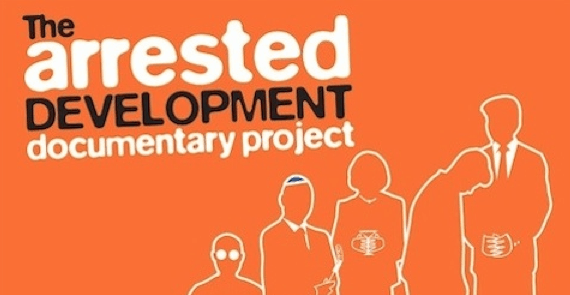
I have always lived in anxiety.
In grade school, I was the kid who got picked on. I was timid and anxious, and the torment inflicted upon me by my peers only perpetuated my anxious behavior. Throughout my adolescence, my anxiety quietly festered. In college, I felt trapped, alone and terrified. It took every ounce of strength to go to my classes. If someone tried speaking to me, I would often shut down. What was very much internal angst began to show external physical signs. Panic attacks, sweats, shortness of breath and other anxiety-ridden symptoms took over. I was prescribed medication for this, which helped physically, but mentally I removed myself from the internal issues I needed to confront.
Then I enrolled in a philosophy course. We studied the typical figures—Socrates, Plato, Aristotle, Descartes, etc. It was the first time I encountered Søren Kierkegaard’s Fear and Trembling. I didn’t know it at the time, but my life was about to radically change.
Here was a philosopher—and a man of faith—who actually experienced anxiety like me.
Kierkegaard is unique among philosophers, in that he listened to and even trusted human emotions. Whereas some philosophers dispose of and do not trust the emotive state of individuals, Kierkegaard not only embraced them, he wrote entire books on them. I began to pursue my masters in philosophy, and Kierkegaard took a prominent role in my life.
Throughout my education, I’ve studied many arguments for the existence of God. While I believe some are successful, many lack the existential pull that is so prevalent in Kierkegaard. My second year living in Denver for graduate school was perhaps the most treacherous year of my life, but it was indeed the most formative. Despair is the single word that sums up that year of my life, a word Kierkegaard knew much about. As it is described in the The Cambridge Companion to Kierkegaard, “hopelessness is just a sign that one has reached a point where the goal of oneself must … be re-conceived in a way that offers new hope.”
I remember vividly reading this line—sitting back in my rocking chair, putting down my pipe, and weeping. There it was. It seemed simple, really. But the moment was as profound as the quote itself. I’d been doing things all wrong. Everyone, included myself, told me I had to get rid of or at least suppress this fear. But the everyday task of taming and attempting to repress the anxiety and fear was futile. The anxiety, the hopelessness, was always there. It was a part of me.
So I read Kierkegaard’s The Concept of Anxiety. It’s a difficult read, perplexing at times, yet the lessons radiated in my being. Kierkegaard argues that anxiety is not, in fact, the enemy, but a part of humanity. The attempts to remove anxiety are futile, he says: “Anxiety is an alien power which lays hold of the individual, and yet cannot tear oneself away, nor has a will to do so; for one fears, but what one fears one desires.”
Kierkegaard taught me what I had been waiting to hear my whole life: Anxiety is necessary and even good. It manifests itself at the juncture where an individual realizes the power he or she has in making decisions. Anxiety is the realization of freedom and the possibility of choice. Some decisions are easy, and sometimes we become paralyzed in our decision-making. Anxiety provoked me to face those decisions, the seemingly infinite possibilities set before me, and walk forward. It provoked me to move.
This book so radically reoriented my concept of anxiety that I was able to develop who I am instead of run from it, condemn it or suppress it.
Society is so quick to run from what scares us—even if we are the object of our own fear. But such hasty movement away from ourselves leaves us feeling hopeless. Yet hopelessness, Kierkegaard teaches, is a catalyst—it is a moment in which one must refocus, shift the paradigm and find new hope.
What’s surprising is that many Christians don’t see it this way. Many will cite passages such as Philippians 4:6-8: “Do not be anxious about anything, but in every situation, by prayer and petition, with thanksgiving, present your requests to God. And the peace of God, which transcends all understanding, will guard your hearts and your minds in Christ Jesus.” They read this and think anxiety should have nothing to do with the life of a believer. From this passage, there seems to be a common—though unrealistic—perception that to worry or to have anxiety is to sin. This is not only false, but incredibly unrealistic. To remove anxiety would be to separate oneself with an attribute of humanity.
Without room for extensive hermeneutics, the Philippians passage speaks as to how one should engage with anxiety: Enter into it with prayer and supplication. It would be foolish to wrestle with anxiety without seeking God’s help through prayer. Whereas anxiety is a part of what it means to be human, it can indeed turn dangerous thing if not engaged properly. And it can lead a person into sin.
Being anxious does not necessarily imply that our faith is weak. Rather, anxiety tests our faith in relation to decision-making. Anxiety reminds us that they are free to make own decisions—whether that decision will better ourselves and our relationship with Christ, or glorify our own self-interests.
Kierkegaard voiced what many of us know already firsthand: “Anxiety is potentially present at every instant.” This seems true enough for my life. In his journals, Kierkegaard writes, “All existence make me anxious, from the smallest fly to the mysteries of the Incarnation; the whole thing is inexplicable to me, I myself most of all; to me all existence is infected, I myself most of all.”
Kierkegaard did not cure me of my anxiety. But he showed me what to do with it. Today, every time I enter the classroom to teach, I enter with some degree of fear and trembling. But the angst is not formed from a lack or preparation. Rather, it is the realization that I can influence my students. The angst reminds me of my own responsibility as an educator, and the seriousness with which I take such a role.
Today, I thank God for my anxiety. And I thank Søren Kierkegaard for changing my life—by teaching me that there is room for fear and trembling in faith.























